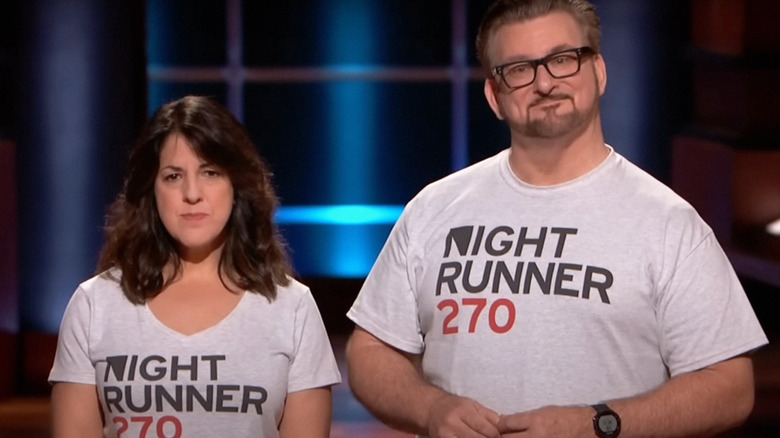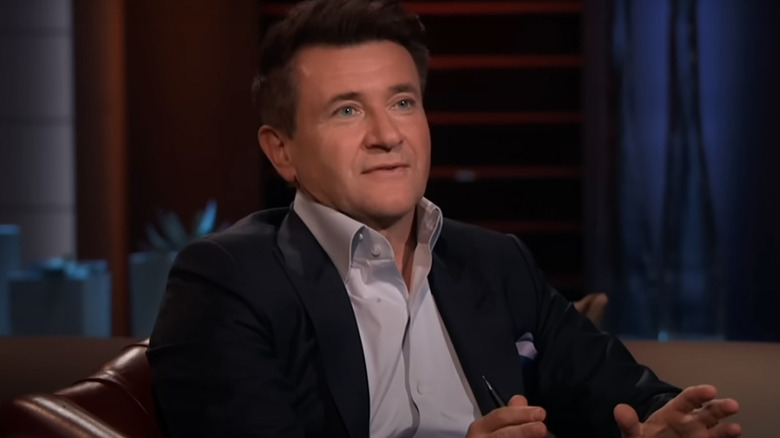Night Runners' Shark Tank Deal Fell Through After Their Shoes Made Bank
On a typical episode of "Shark Tank," a number of entrepreneurs will pitch their businesses to its panel of professional investors and either secure a sizable influx of cash, or walk away without interest from any of the Sharks. Of course, this standard procedure is complicated from time to time for a variety of reasons. For example, in a "Shark Tank" record, the business owner of a grocery bag carrying device called Click and Carry won funding on-air after first pitching the Sharks a total of seven times, eventually paying off her tenacity.
Meanwhile, through no fault of his own, the proprietor of an app designed to help college students find scholarships sparked a heated argument between the Sharks, when three members of the panel criticized the other two co-panelists for agreeing to fund the app in a manner they argued was unwarranted. This is just one of multiple heated "Shark Tank" moments.
Sometimes, as happened with the disappointing outcome of Pinblock's "Shark Tank" deal, businesses will even secure funding only for the deal to fall through after filming. Such was the case with running shoe equipment brand Night Runner, though in a subversion of what typically occurs, it wasn't any of the Sharks' decision to pull back from the deal proposed on TV, but its owners who made the call.
The owners of Night Runner decided their Shark Tank agreement was no longer in their best interest
Doug and Renata Storer appeared on "Shark Tank" Season 8 in 2016, pitching the Sharks on Night Runner, a shoe attachment they designed to help runners see in the dark. As outlined in an article about the episode and its aftermath on Forbes, they ultimately accepted a $250,000 offer from Robert Herjavec for 15% equity in the company. However, when it came time to nail down the particulars of their deal months after filming, the pair decided to back out after determining the offer to no longer be to their benefit.
"We filmed in June and we didn't start negotiating with Robert's team until October," Doug told Forbes. "After it aired, we didn't need the investment anymore and we started to think, why should we give up equity if we don't need it. Also they offered fewer dollars for the same equity. We came to a mutual decision that the deal wasn't in our best interest."
According to Doug, Night Runner manufactured extra stock to coincide with the date of their "Shark Tank" episode airing, anticipating an uptick in sales. This paid off when the company earned more than twice its 2016 total the month its "Shark Tank" episode premiered. So, while Herjavec was ultimately uninvolved in the company's trajectory, "Shark Tank" was nevertheless instrumental in Night Runner's success.

